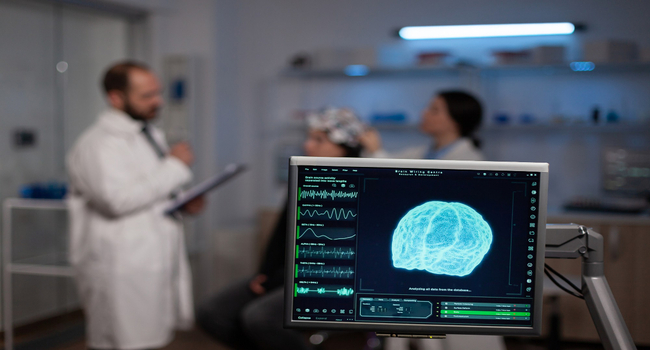
A clinical trial explored the use of a technique called transcranial direct current stimulation (tDCS) to help manage chronic pain in older adults with Alzheimer's disease and related dementias (ADRD). The researchers wanted to see if tDCS could be a feasible and effective treatment option for this population, as well as how well it was accepted by patients and caregivers.
Clinical Trial
The trial involved 40 participants who were randomly assigned to either an active tDCS group or a sham tDCS group. The active group received five 20-minute tDCS sessions at home, while the sham group received fake treatments that did not actually provide any stimulation. To measure the effectiveness of the treatment, the researchers used two different pain scales - one rated by the patients themselves, and one rated by their caregivers.
Results
The results showed that patients in the active tDCS group experienced significant reductions in their pain intensity, as measured by both scales. The researchers also found that the home-based tDCS treatment was feasible and well-received by the participants.
These findings suggest that tDCS may be a promising option for managing chronic pain in older adults with ADRD. However, the researchers note that more large-scale studies with larger sample sizes are needed to confirm these results and determine the long-term effects of tDCS.
Transcranial Direct Current Stimulation (tDCS)
Transcranial direct current stimulation works by sending a low electrical current through electrodes placed on the scalp. This current can help stimulate or inhibit certain areas of the brain, depending on the desired effect. In the case of chronic pain management, tDCS is thought to work by reducing the sensitivity of the nerves that transmit pain signals to the brain.
Chronic pain is a common issue among older adults with ADRD and can be difficult to manage with traditional pain medications. This is where tDCS comes in - it provides a non-invasive and relatively low-risk alternative that could potentially help improve the quality of life for this population.
While this trial focused specifically on the use of home-based tDCS, it's worth noting that there are other types of tDCS that can be administered in a clinical setting. These treatments may involve longer sessions or more frequent treatments and may be more appropriate for certain individuals.
Conclusion
Overall, the results of this pilot trial suggest that tDCS has the potential to be a useful tool in the management of chronic pain in older adults with ADRD. As more research is conducted, we may gain a better understanding of how to optimize this treatment and who may benefit the most from it.
